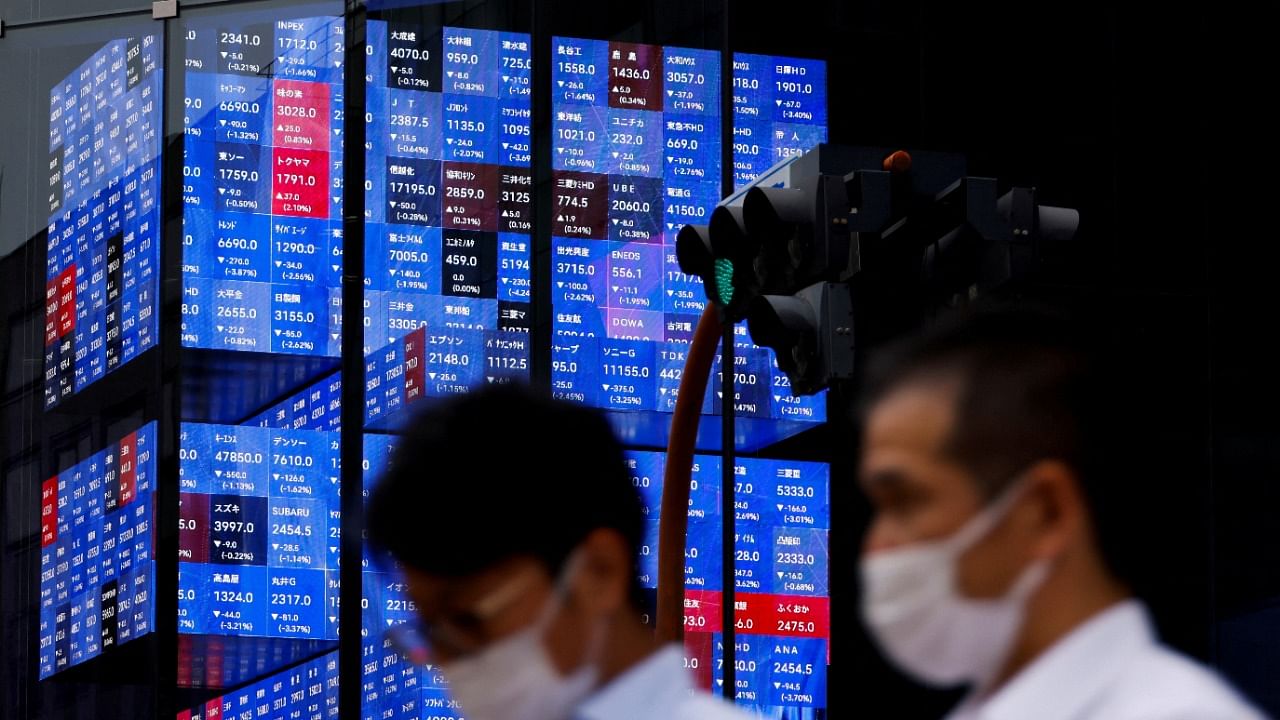
Asian markets sank Friday after another devastating day on US and European trading floors, with inflation continuing to soar and central bankers getting increasingly hawkish in their attempts to bring prices under control.
Sterling, however, managed to hold gains after clawing back more of the huge losses suffered at the start of the week owing to a tax-cutting mini-budget that analysts warned could cause even more pain to the already fragile UK economy.
The pound's bounce -- from a record low of $1.0350 Monday to above $1.11 Friday -- came after the Bank of England pledged $71 billion of support to shattered financial markets, fearing that several pension funds could go under.
Britain's beleaguered currency was given an extra boost by news Thursday that the budget watchdog will provide costings of new Finance Minister Kwasi Kwarteng's fiscal plan on October 7, two weeks earlier than initially announced.
"This has helped alleviate some fears within markets given the initial optics of an uncosted large fiscal package," said National Australia Bank's Tapas Strickland.
Markets remain concerned about the UK economy and the impact that borrowing tens of billions of dollars will have on interest rates, with observers warning that the Bank of England could announce a 1.5 percentage point hike at its next meeting in November.
Sean Callow, at Westpac Banking Corp, said the pound's gains this week were "a reminder that currencies are driven by a myriad of factors -- it's clearly not due to any improvement in the outlook for the UK".
The bank's cash injection meant it had to put on hold its plan to tighten monetary policy as part of a global effort to fight decades-high inflation.
And in a sign of the long road ahead for finance chiefs -- and the dour outlook for stocks -- data out of several countries including Germany and Belgium this week showed that prices are still rising about 10 percent year-on-year.
In the United States, Federal Reserve officials again reiterated their intention to ramp up rates until they have tamed inflation, even if that means plunging the world's top economy into recession.
And the case for a fourth successive 0.75 percentage point lift was strengthened by news that first-time unemployment benefit claims fell below 200,000 for the first time since May.
All three main indexes on Wall Street finished deep in the red, with the S&P 500 ending at its lowest level since November 2020.
And Asia picked up the baton.
Hong Kong and Shanghai dropped as data showed China's manufacturing and services sectors struggled again in September from Covid lockdowns in parts of the country that have battered the world's number-two economy.
There was also little reaction to the news that Beijing would allow some cities to reduce mortgage rates for first-home purchases as it tries to support the property market.
Tokyo, Sydney, Seoul, Singapore, Taipei, Wellington, Manila and Jakarta were also off.
"Risky assets don't stand a chance of a meaningful rally if the economy continues to show resilience while inflation continues to be significantly above the Fed's Funds rate," said OANDA's Edward Moya.
Market sentiment was also being eroded by rising fears about developments in the Ukraine war, as Russia prepares to annex four occupied regions of its neighbour Friday, with President Vladimir Putin threatening to use nuclear weapons to defend the territories.
Tokyo - Nikkei 225: DOWN 1.7 percent at 25,979.75 (break)
Hong Kong - Hang Seng Index: DOWN 0.2 percent at 17,132.81
Shanghai - Composite: DOWN 0.4 percent at 3,029.26
Pound/dollar: DOWN at $1.1113 from $1.1116 on Thursday
Euro/dollar: DOWN at $0.9807 from $0.9818
Euro/pound: DOWN at 88.27 pence from 88.28 pence
Dollar/yen: UP at 144.70 yen from 144.42 yen
West Texas Intermediate: DOWN 0.1 percent at $81.14 per barrel
Brent North Sea crude: DOWN 0.3 percent at $88.23 per barrel
New York - Dow: DOWN 1.5 percent at 29,225.61 (close)
London - FTSE 100: DOWN 1.8 percent at 6,881.59 (close)